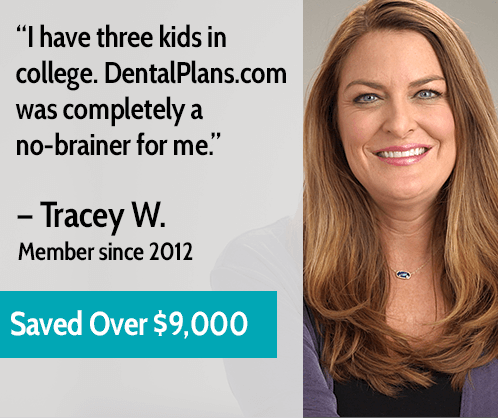“Health is not just about what you’re eating. It’s about what you’re thinking and saying too.” – Unknown
Access to affordable health insurance in Longwood, Florida, is essential for residents looking to secure their health and financial stability. Health insurance is not just a safety net; it is a doorway to accessing necessary medical care. When individuals and families have proper healthcare plans, they can navigate unforeseen health challenges without the weight of financial strain. The peace of mind that comes from knowing you’re covered allows you to focus on wellness, recovery, and enjoying life. Choosing the right health insurance can significantly improve health outcomes and promote a better quality of life, particularly for demographics under 65 years, such as individuals, families, small business owners, self-employed professionals, skilled workers, and independent contractors.
Are you ready to navigate the complexities of health insurance effectively? A market research consultation done by a licensed health insurance expert can save you time, money, and prevent mistakes in choosing the right health coverage tailored to your needs. Fill out the form below to get started!

Understanding Health Insurance Costs
What are the key cost factors in health insurance?
When it comes to health insurance, several cost factors impact premiums and overall affordability. The most common components include premiums, deductibles, out-of-pocket expenses, and out-of-pocket maximums. Premiums are the monthly fees paid to maintain your insurance coverage, often influenced by age, health conditions, and the chosen plan’s benefits. Deductibles, on the other hand, are the amounts you’ll need to spend before your insurance begins to cover your medical expenses. Understanding these terms can help individuals and families better manage their healthcare expenses and avoid unpleasant surprises when medical needs arise. Lastly, considering out-of-pocket maximums can protect you against exorbitant costs in a given year.
Impact of pre-existing conditions on costs
Pre-existing conditions can significantly affect insurance premiums and availability of coverage. Under the Affordable Care Act (ACA), insurers cannot deny coverage or charge higher premiums based on health conditions. This offers a level playing field that prioritizes health over profit, making healthcare accessible to those with previous health issues. However, some private insurance options may impose waiting periods or exclusions for certain conditions, adding complexity to decision-making. As you evaluate your options, remember that understanding how these factors influence costs enables you to choose a plan that aligns with your health needs and budget.

The Difference Between ACA Marketplace and Private Insurance
What are the advantages of the ACA marketplace?
The ACA marketplace provides a structured platform for individuals and families to compare different health insurance plans based on coverage, costs, and specific needs. One major advantage is the availability of premium tax credits and subsidies for those who qualify, making insurance more affordable compared to private options. Additionally, all plans in the ACA marketplace must cover essential health benefits. These include preventive services, hospitalization, and prescription drugs, ensuring a comprehensive level of coverage. This regulatory oversight fosters a more equitable healthcare system where consumers are empowered to make informed choices without hidden clauses or unexpected costs.
What are the cons of private insurance?
On the other hand, private insurance may offer greater flexibility in terms of network providers and customization of plans, but it can also come with significant drawbacks. These plans may have limited coverage for preventative services and can include higher premiums and deductibles. Additionally, private insurers might use more aggressive underwriting practices that can leave individuals with pre-existing conditions without adequate coverage. This contrast emphasizes the importance of weighing the pros and cons of both options to find the best health insurance solution that fits your lifestyle and budget.
Get a hussle-free consultation
Provider Networks: A Critical Component
Understanding provider networks
Provider networks greatly influence your healthcare access and costs. Insurers typically work with a specific list of doctors, hospitals, and specialists known as a network. Health plans usually fall into categories like HMO (Health Maintenance Organization), PPO (Preferred Provider Organization), or EPO (Exclusive Provider Organization). HMOs often require members to choose a primary care physician (PCP) and get referrals for specialists, promoting coordinated care but limiting provider choice. PPOs, however, provide the freedom to see any doctor, albeit at a higher out-of-pocket cost if out of network. Understanding these differences is crucial for selecting the right plan based on your healthcare needs and preferences.
Navigating networks effectively
To get the most out of your health insurance, it’s essential to choose a plan with a provider network that meets your needs. If you have preferred healthcare providers, make sure they are included within the network of any plan you consider. Out-of-network care can lead to substantially higher costs, which can wreak havoc on your budget. Utilize your insurance company’s online tools to check provider availability and make informed decisions about your healthcare. Ultimately, understanding the nuances of provider networks can guide individuals and families toward a health plan that facilitates seamless access to crucial care.

Health Insurance for Small Business Owners
What are the options available?
Small business owners often have unique needs when it comes to health insurance. Utilizing the ACA marketplace can provide access to affordable plans for both owners and employees, with the possibility of tax credits if a venture meets certain criteria. Group health insurance plans might also be available, enabling businesses to provide coverage to their employees while potentially benefiting from lower premium rates. These group plans can be appealing as they often come with shared costs and expanded options that individual policies do not. Insight into these opportunities is essential for small business owners looking to retain talent and support their teams.
Challenges faced by self-employed professionals
Self-employed individuals often face challenges when seeking affordable health insurance. Without employer-sponsored coverage, they may feel overwhelmed by the range of choices, complexities, and costs involved in securing a plan. Additionally, the need for comprehensive coverage can drive up premium costs, which may not be sustainable for someone just starting in their business. It is vital for self-employed professionals to thoroughly research their health coverage options, consider their financial capabilities, and possibly engage an insurance expert to navigate unclear waters effectively.

Final Thoughts on Choosing the Right Health Insurance
Reiterating the importance of well-informed decisions
In conclusion, the landscape of health insurance can be daunting but understanding it is key to securing the right coverage. Evaluating your financial situation, health needs, and the differences between marketplace and private plan options will empower you to make the best choice. Always remember to scrutinize provider networks, out-of-pocket costs, and the implications of pre-existing conditions while making your decisions, as these elements could greatly affect your healthcare experience. Taking the time to familiarize yourself with these aspects ensures that your selected plan aligns with your lifestyle and financial capabilities.
Get immediate assistance for your health insurance needs
If you need immediate assistance in navigating your health insurance options, don’t hesitate to reach out. Call or text (407) 588-0505 for personalized guidance tailored to your specific needs.
Frequently Asked Questions
1. What are the eligibility requirements for the ACA marketplace?
Eligibility for the ACA marketplace primarily depends on your residence in Florida, age, and income. Applicants must also be a U.S. citizen or legal resident. You can apply during open enrollment periods or if you qualify for a special enrollment event.
2. How do I determine if I qualify for premium tax credits?
To qualify for premium tax credits, your household income must fall within 100% to 400% of the federal poverty level. Use the income calculator on the ACA website to understand your eligibility better.
3. Can I change my health insurance plan during the year?
Generally, you can only change your health insurance plan during the annual open enrollment period unless you experience a qualifying life event, such as a marriage, birth of a child, or loss of other coverage, which allows for special enrollment.
4. How can I appeal a denial of coverage from a private insurer?
If your private insurer denies coverage, first request a written explanation for the denial. Then, you can file an appeal with your insurer or seek assistance from your state insurance department for further support on navigating the appeals process.
5. Is it possible to have health insurance and still face high medical costs?
Yes, even with health insurance, high deductibles, copayments, and out-of-pocket costs can still lead to considerable medical expenses. Choosing a plan with a lower deductible and better coverage can help mitigate this risk.







0 Comments